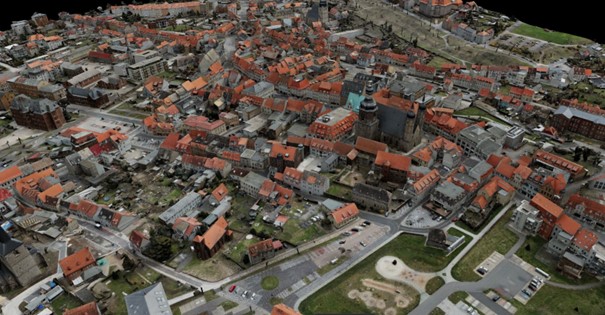Decarbonizing urban systems is one of the major challenges of our time, especially for historic centers across Europe. As a partner in the ZEB4ZEN consortium, Magdeburg-Stendal University of Applied Sciences plays a pivotal role in developing innovative solutions to tackle these challenges. Digital tools significantly enhance and accelerate decision-making processes in urban planning.
On 11.04.2024, a meeting of the German UNESCO Working Group was held in Quedlinburg, where the latest developments and methodologies crafted by the consortium partners, including Magdeburg-Stendal University of Applied Sciences, were presented. These methodologies are tailored to the needs of the historic cities of Quedlinburg, Palmanova, Karlovac, and Zamość, all of which are part of the project.
The meeting’s outcomes were extremely positive, with a strong focus on exchanging new technologies and best practices for the sustainable development of these historic cities. The approaches discussed, and the potential transfer of these methods to other German UNESCO cities demonstrate the potential and significance of the research work within the consortium.
